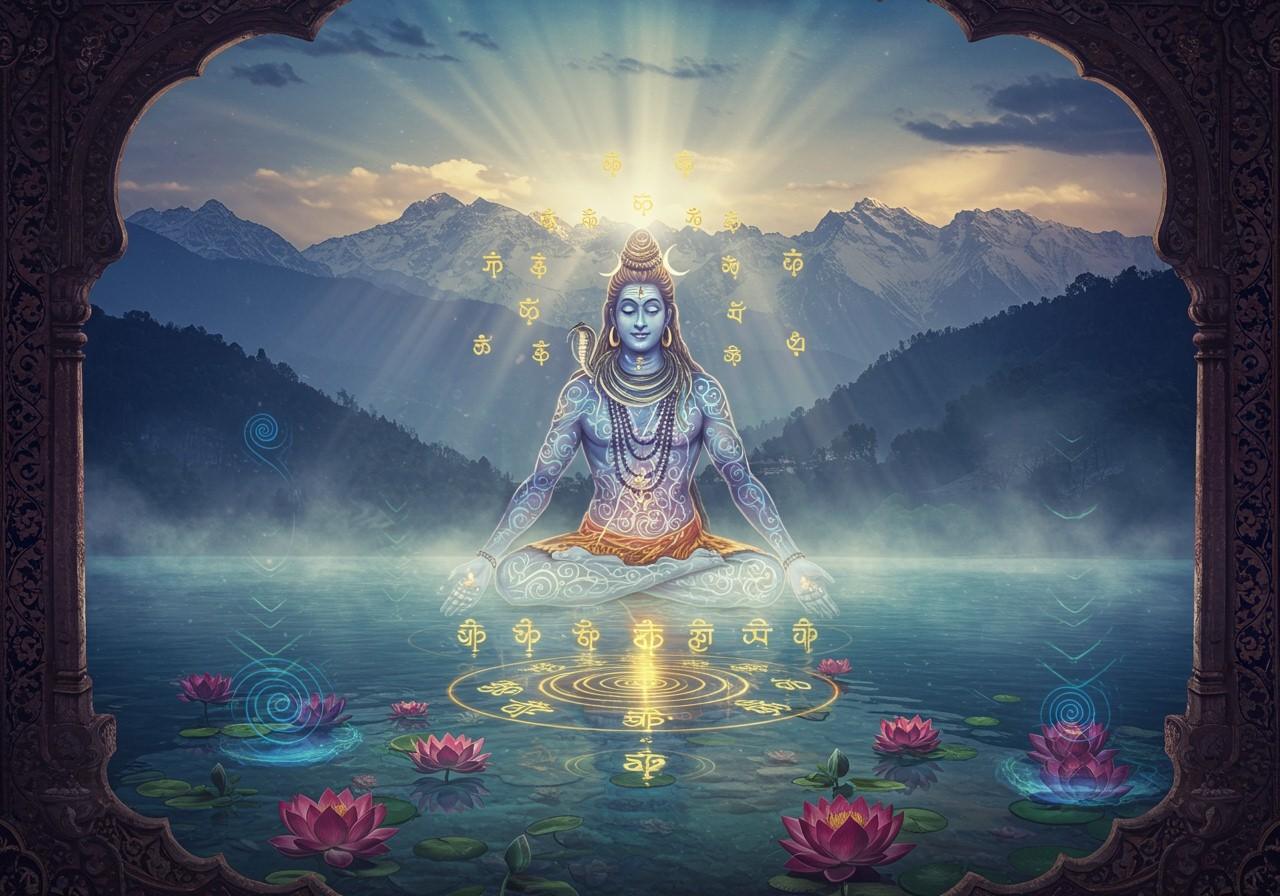
Kashmir Shaivism, also known as Trika Shaivism, is a non-dualist tradition within Shaiva-Shakta Tantra Hinduism. Originating in the Kashmir Valley around 850 CE, it emphasizes the profound unity of the individual soul with the universal consciousness, Shiva. This exploration delves into its rich philosophy, practices, and core principles, offering a valuable resource for those seeking to understand this ancient tradition.
What is Kashmir Shaivism?
Kashmir Shaivism, a non-dualistic tradition within Hinduism, emphasizes the oneness of the individual soul with universal consciousness (Shiva). Developed in the Kashmir Valley, this tradition offers a unique perspective on spiritual practices, viewing the world as a real manifestation of the divine, rather than an illusion. It reached prominence between the 8th and 9th centuries CE and continued to make significant philosophical and theological contributions until the end of the 12th century CE.
- Non-dualistic Nature: Kashmir Shaivism asserts the fundamental unity of the individual soul (Atman) and the universal consciousness (Brahman), embodied in Shiva. This non-dualistic perspective distinguishes it from other schools of thought that maintain a separation between the individual and the divine. It views all of reality as a manifestation of Shiva’s consciousness.
- Historical Context: Originating in the Kashmir Valley around 850 CE, Kashmir Shaivism evolved over centuries, incorporating elements of Tantra and other philosophical schools. Its development was shaped by key figures like Vasugupta, Abhinavagupta, and Ksemaraja. The tradition flourished for several centuries, making profound contributions to Indian philosophy and spirituality.
- Key Concepts: Central to Kashmir Shaivism are concepts like Spanda (divine vibration or pulsation), Pratyabhijna (recognition of one’s true nature as Shiva), and the interplay of Shiva-Shakti (the dynamic interplay of consciousness and energy). These concepts are explored through various scriptures and philosophical treatises.
- Trika System: The term “Trika,” meaning “trinity,” reflects a key aspect of Kashmir Shaivism’s philosophy. This trinity comprises Shiva (the supreme consciousness), Shakti (divine energy), and Nara (the individual soul), highlighting their interconnectedness and ultimate unity. Understanding this trinity is essential for comprehending the tradition’s non-dualistic perspective.
The Founders of Kashmir Shaivism
Kashmir Shaivism’s development was significantly shaped by influential figures who systematized its teachings and practices. These individuals contributed to the transmission and preservation of this rich tradition.
- Vasugupta (c. 850 CE): Considered the founder of Kashmir Shaivism, Vasugupta is credited with rediscovering the Shiva Sutras, foundational scriptures revealed to him in a dream. These sutras became a cornerstone of the tradition’s teachings.
- Abhinavagupta (c. 950-1020 CE): A renowned philosopher, theologian, and aesthetician, Abhinavagupta systematized and elucidated the teachings of Kashmir Shaivism. His magnum opus, Tantraloka, is a comprehensive treatise on the tradition’s philosophy and practices. He referred to Kashmir Shaivism as “Trika,” meaning “the Trinity.”
The Philosophy of Kashmir Shaivism
Kashmir Shaivism’s philosophical depth centers on the concept of self-realization – recognizing one’s inherent divinity as a manifestation of Shiva.
- Universal Consciousness: This tradition posits that everything in the universe emanates from and is ultimately a manifestation of Shiva, the supreme consciousness. This concept underscores the interconnectedness of all beings and phenomena. The world is seen as a real expression of Shiva’s consciousness, not an illusion.
- Self-Recognition (Pratyabhijna): Central to Kashmir Shaivism is the practice of Pratyabhijna, the recognition of one’s true nature as Shiva. This involves a process of self-inquiry and spiritual practice to remove the veils of ignorance that obscure one’s inherent divinity.
Practices in Kashmir Shaivism
Kashmir Shaivism offers a range of spiritual practices designed to facilitate the realization of one’s unity with Shiva. These practices, rooted in tradition, aim to cultivate a deeper connection with the divine and promote self-transformation.
- Mantra Practice: The recitation of mantras plays a central role in focusing the mind and invoking divine energies. Specific mantras associated with Shiva, such as the Panchakshara Mantra (“Om Namah Shivaya”), are used to deepen one’s connection with the divine.
- Meditation (Dhyana): Meditation is a cornerstone of Kashmir Shaivism, enabling practitioners to cultivate inner stillness and access deeper states of consciousness. Through regular meditation, individuals can transcend the limitations of the ego and experience the unity of their being with Shiva.
Core Principles of Kashmir Shaivism
Guiding practitioners on their spiritual journey, Kashmir Shaivism’s core principles provide a framework for understanding the nature of reality and the path to liberation.
- Svatantrya (Absolute Freedom): This principle emphasizes the inherent freedom of the individual soul, which is ultimately identical to Shiva. Recognizing this freedom is key to liberation from the limitations of conditioned existence.
- Anuttara (The Supreme): Anuttara refers to the highest reality, Shiva, the ultimate goal of spiritual practice. It represents the state of absolute consciousness and bliss that is attainable through self-realization.
Resources for Further Exploration
For those seeking deeper knowledge, numerous resources offer comprehensive insights into Kashmir Shaivism.
- Shiva Sutras: These foundational texts, revealed to Vasugupta, provide profound wisdom and guidance for spiritual practice within the tradition. They offer concise aphorisms that encapsulate the essence of Kashmir Shaivism.
- Tantraloka by Abhinavagupta: This extensive treatise is considered one of the most important works in Kashmir Shaivism. It provides a detailed exposition of the tradition’s philosophy, practices, and rituals.
How Poojn.in Supports Your Spiritual Journey
Poojn.in offers a curated selection of items to support practitioners of Kashmir Shaivism. Our collection includes:
- Shiva Lingams: Central to worship and meditation, we offer authentic Shiva Lingams in various sizes.
- Dhoop and Incense: Create a sacred atmosphere with traditional dhoop and incense specifically suited for Shaivite practices.
Visit Poojn.in to explore our full range of products.
Conclusion
Kashmir Shaivism provides a profound path towards self-realization, emphasizing the unity of the individual with the divine. Its rich philosophical framework, complemented by its practical spiritual techniques, continues to inspire seekers today. Through exploration and practice, one can uncover the profound wisdom of this ancient tradition.


